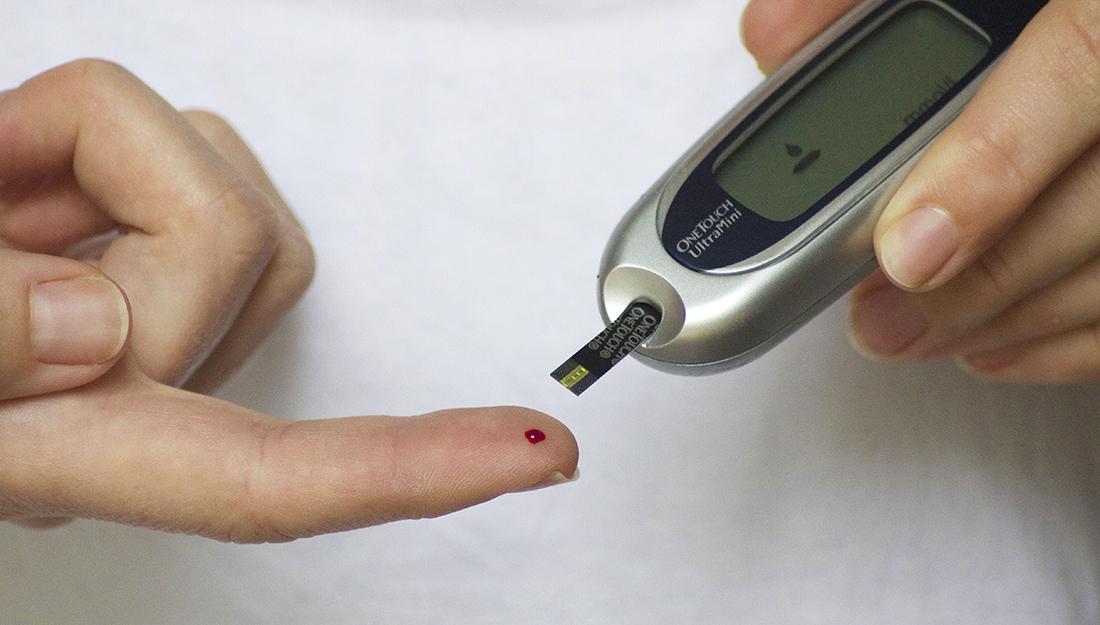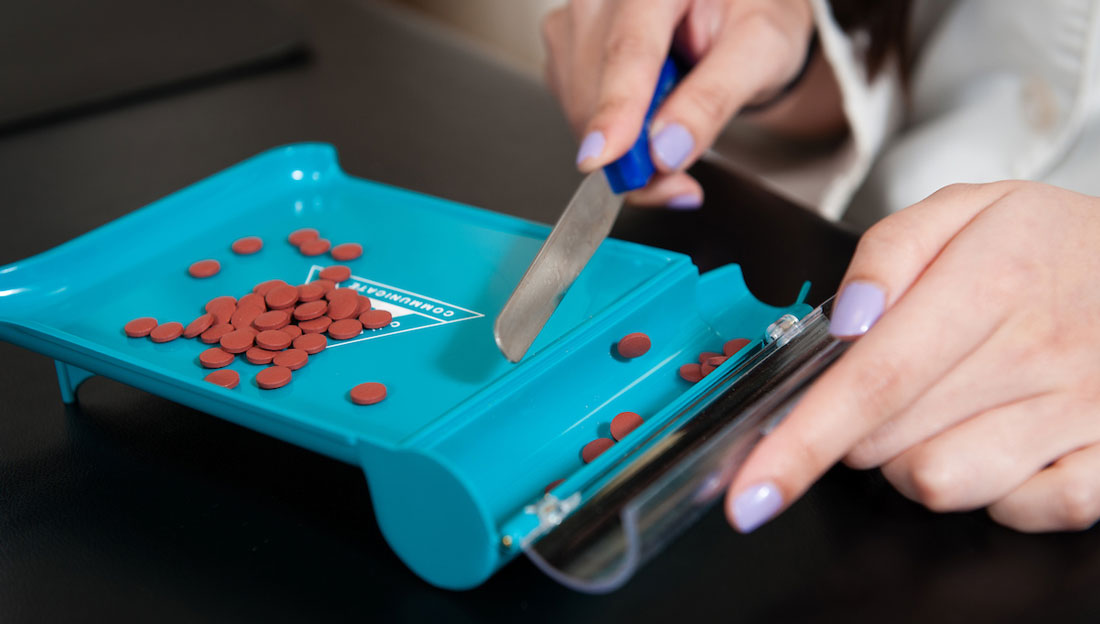- Gracie Blackwell
- Healthy Living, Medicine, Show on VR homepage
5 ways to keep diabetes under control
Controlling your diabetes is more important than ever during the COVID-19 pandemic and flu season

November is Diabetes Awareness Month. Diabetes is a disease that plagues around 10.5 percent of the U.S. population and is the seventh-leading cause of death in the U.S. Now, more than ever, it is important for people, especially those with diabetes, to watch over their health, especially due to the simultaneous occurrence of the COVID-19 pandemic and flu season.
Diabetes occurs when the amount of blood glucose—the main form of energy your body uses, which comes from food—in your body is too high. A hormone made by the pancreas, called insulin, helps the glucose from the food be used for energy. Diabetes occurs when the body does not make enough insulin (in type 1 diabetes) or does not use the insulin efficiently (type 2 diabetes).
Jason R. McKnight, MD, MS, FAAFP, clinical assistant professor in the Department of Primary Care and Population Health at the Texas A&M University College of Medicine, provides five ways that people can keep their diabetes—more specifically their type 2 diabetes—under control.
Maintain a healthy weight
According to McKnight, the majority of people with type 2 diabetes are overweight. This is because excess fat in the body predisposes an individual to the insulin-resistant state that leads to type 2 diabetes.
“If you’re overweight, you are almost certainly at risk for developing type 2 diabetes at some point in time, so maintaining a healthy weight is very important to help prevent the onset of type 2 diabetes,” McKnight said.
To identify which weight category you are in, McKnight recommends using the Body Mass Index (BMI) method, which uses your height and weight to measure your body fat. Although it is not perfect, it is the best objective way doctors use to categorize weight, according to McKnight.
Eat a well-balanced diet
The foods you eat can make a huge difference in how well you manage your diabetes. A healthy diet that incorporates a variety of the main food groups can help control your blood sugar, help you maintain a healthy weight and give you more energy throughout the day.
According to the National Institute of Diabetes and Digestive and Kidney Diseases, people with diabetes should eat from the main food groups but limit the amount of foods high in saturated and trans-fat, sodium, sweets and beverages with added sugar. You may talk to your doctor or health care provider about setting up a healthy meal plan that is right for you.
“It is recommended that your diet not be heavily reliant on fats and carbohydrates,” McKnight said. “Even if you’re able to maintain a healthy weight, long term ingestion of a high level of carbohydrates causes your body’s blood sugar to spike up, which can lead to an insulin-resistant state and can cause type 2 diabetes.”
Exercise regularly
Exercise is the best method to decrease insulin resistance, according to McKnight. “There are lots of medications out there for type 2 diabetes, but nothing really works as well as what exercise does,” McKnight said. “When you exercise and work out, your body is burning more blood sugar and as your muscles get bigger, they actually have more insulin receptors on them, so sometimes we can actually get rid of that insulin-resistant state and either prevent or basically treat type 2 diabetes.”
The Centers for Disease Control and Prevention (CDC) recommends that adults get at least 150 minutes of moderate-intensity aerobic activity per week and participate in a muscle-strengthening activity at least twice per week. Moderate-intensity aerobic activity can be anything that gets your heart beating faster, which can include brisk walking, pushing a lawn mower or riding a bike. Muscle-strengthening activities include lifting weights, doing pushups or sit-ups or heavy gardening.
Although these are the recommendations, McKnight says that any amount of exercise that you can do is better than none.
Take all medications as prescribed
If you have type 2 diabetes, you must work with your doctor or health care provider to keep blood sugar levels down. Your provider will prescribe certain medications tailored to fit your needs. It is important to take your medications in the right way and on time because long-standing, untreated diabetes or blood sugar that is higher than usual for patients can lead to many complications.
Keeping a list of all your current medications, filling your prescription immediately after your appointment and creating a daily routine for tracking your medications are all important measures in order to take your medicine as prescribed, according to the Association of Diabetes Care & Education Specialists.
Control other chronic health problems
There are certain other medical problems that can increase someone’s risk of diabetes or increase the risk of complications from diabetes. McKnight says it is important to monitor these other chronic health problems to prevent further complications.
For instance, people with untreated or undertreated hypothyroidism puts them at risk for developing type 2 diabetes, or if they already have diabetes, it makes it more difficult to keep their blood sugar under control.
According to the CDC, the best ways to control your chronic health problems include visiting your doctor regularly to get screened, avoiding drinking too much alcohol, getting enough sleep and quitting smoking.
Media contact: media@tamu.edu


